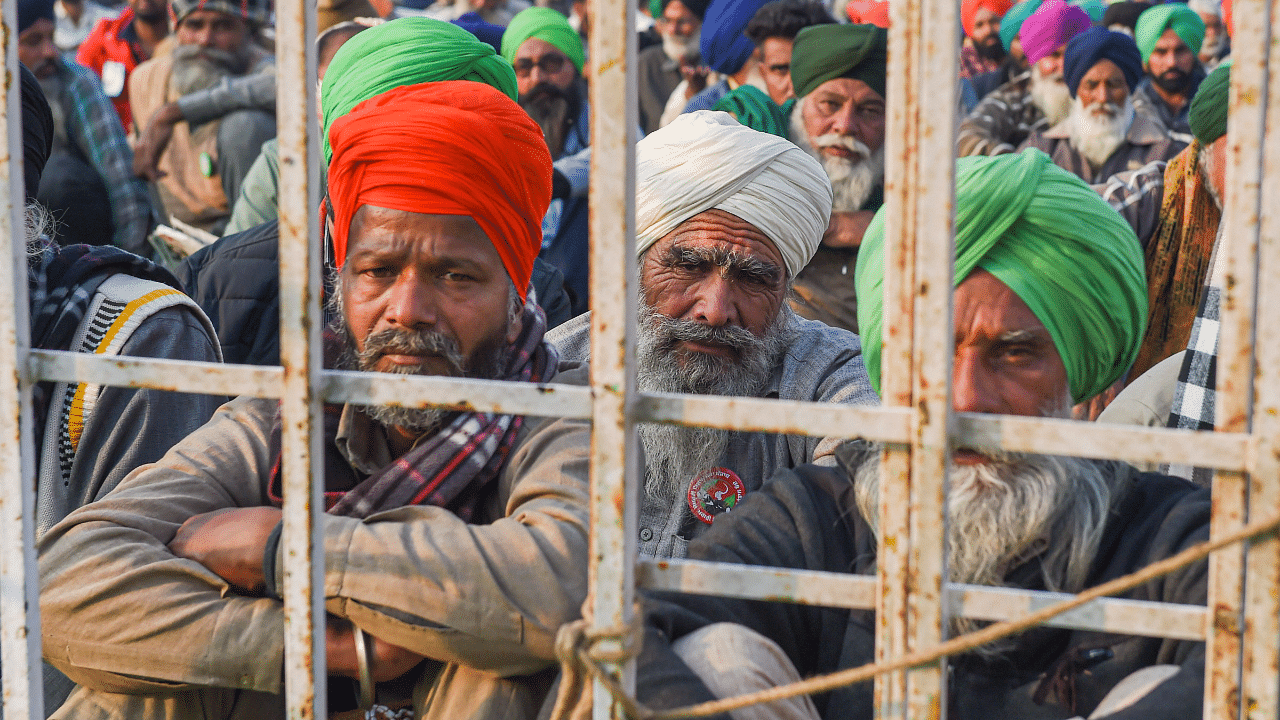
The agitation by the farmers against the new agricultural laws has continued to draw international attention, with seven members of the United States Congress recently writing to President Donald Trump’s Secretary of State Mike Pompeo expressing “serious concerns” over what they called “civil unrest” in India.
Several members of the United Kingdom’s Parliament too are set to write a letter to British Prime Minister Boris Johnson asking him to discuss the issue of protests by the farmers with his counterpart Narendra Modi during his proposed visit to New Delhi to attend the Republic Day ceremony of India on January 26.
New Delhi earlier strongly protested “unwarranted” comments by Canadian Prime Minister Justin Trudeau after he and some other members of his cabinet expressed concern over the police action on the agitating farmers in India.
“We express our serious concerns regarding ongoing civil unrest in India,” the seven members of the US Congress wrote to Pompeo. “As a nation that is familiar with political protests, we believe that the United States can offer counsel to India during their current period of social disturbance”.
The lawmakers, who wrote to the US Secretary of State, included Pramila Jayapal, the Indian-American Democrat member of the American House of Representatives. This is an issue of particular concern to Sikh Americans linked to Punjab, although it also heavily impacts the Indian Americans belonging to other states in India, they wrote.
Six of the seven US Congress members – Jayapal, Brendan F Boyle, Debbie Dingell, David Trone, Donald Norcross, and Mary Gay Scanlon – are from the Democratic Party. Brian Fitzpatrick of the Republican Party too joined them.
The members of the US Congress wrote to the Secretary of State after learning from media reports that the protesting farmers were brutally subjected to water cannon attacks, barbed wire barricades, and tear gas by the security personnel.
Trone recently also issued a separate statement, expressing concern over reports of violence used against protesters. He stated that he was saddened to hear that some of the protesters had died due in part to harsh weather conditions.
The majority of the farmers protesting against the new agricultural laws enacted by the Modi government are Sikhs from Punjab and Haryana. Some farmers from Uttar Pradesh and Rajasthan also joined the protest.
"Many Indian Americans are directly affected as they have family members and ancestral land in Punjab and are concerned about the well-being of their families in India. In view of this serious situation, we urge you to contact your Indian counterpart to reinforce the United States' commitment to the freedom of political speech abroad," they wrote to Pompeo, nudging him to discuss the issue with External Affairs Minister S Jaishankar.
They acknowledged the right of the Government of India to determine national policy, in compliance with existing law, but added: “We also acknowledge the rights of those in India and abroad who are currently protesting peacefully against agricultural laws that many Indian farmers see as an attack on their economic security.”
The protesters claimed that the newly enacted laws would dismantle the Minimum Support Price system and would thus leave them at the mercy of big corporate houses. The government sought to allay the apprehensions over the new laws, claiming that they would in fact ensure better opportunities for the farmers. The government had several rounds of talks with the leaders of the protesters but failed to reach an agreement with them.
Earlier, the US lawmakers, John Garamendi, Jim Costa, and Sheila Jackson Lee, wrote New Delhi’s envoy to Washington D.C. Taranjit Singh Sandhu, expressing distress over the actions by the Government of India to restrict the rights of freedom of assembly and freedom of the press.
